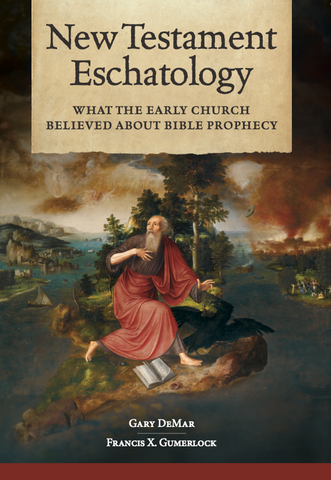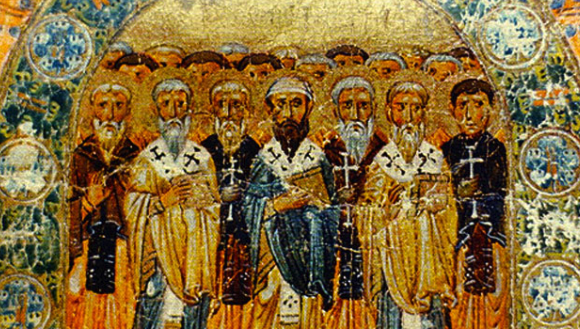Gary reviews a book by Ken Johnson called “The End Times and the Ancient Church Fathers.”
Jesus predicted in the presence of Peter: “They will deliver you to tribulation, and will kill you…” (Matt. 24:9; cf. John 21:18-19). George Edmundson summarizes the argument by asking why Peter and Paul are cited as examples of martyrdom “if Clement had just passed through the persecution of Domitian” in the mid 90s? Why didn’t Clement mention well-known Christian martyrs from his own era who suffered? “Is it conceivable that none of their examples should have been brought forward, but only those of an already distant persecution, whose memory more recent events must have tended to throw into the background?”
Of Paul, Clement writes, “After preaching both in the east and west, he gained the illustrious reputation due to his faith, having taught righteousness to the whole world, and come to the extreme limit of the west.” It was Paul’s plan to go to Spain (Rom. 14:24, 28). Compare this statement with what Jesus says in Matthew 24:14, a verse that LaHaye and Ice maintain has not been fulfilled.
“And this gospel of the kingdom shall be preached in the whole world for a witness to all the nations, and then the end shall come.”
Clement, following the language of Jesus and Paul, states that the “whole world” (kosmos) had been “taught righteousness.” Paul writes to the Romans that their “faith is being proclaimed throughout the whole world [kosmos]” (Rom. 1:8). At the end of Romans we read that the gospel “has been made known to all the nations, leading to obedience of faith” (16:26). To the Colossians we learn that, according to Paul, the gospel “was proclaimed in all creation under heaven, and of which I, Paul, was made a minister” (Col. 1:23; cf. 1:6 [kosmos]).

New Testament Eschatology
It has been maintained by some modern writers that the early church was predominately premillennial and exclusively futuristic on Bible prophecy. According to this popular view, the early Christian writers who commented on prophetic passages like the Olivet Discourse (Matthew 24, Mark 13, Luke 21) believed and wrote that the biblical authors were always referring to events in the distant future just before something called the “rapture” or the return of Christ. While these claims have been made with certainty, there has always been a lack of clear historical documentation to support them. The evidence shows that many early church writers understood the destruction of Jerusalem in AD 70 to be the end of the Old Covenant world.
Buy NowGary reviews a book by Ken Johnson called “The End Times and the Ancient Church Fathers.” Johnson’s argument is that the early church fathers believed and taught a similar end times view to modern-day dispensationalists. Gary disagrees and contrasts Johnson’s book and views with the truth of Scripture.

